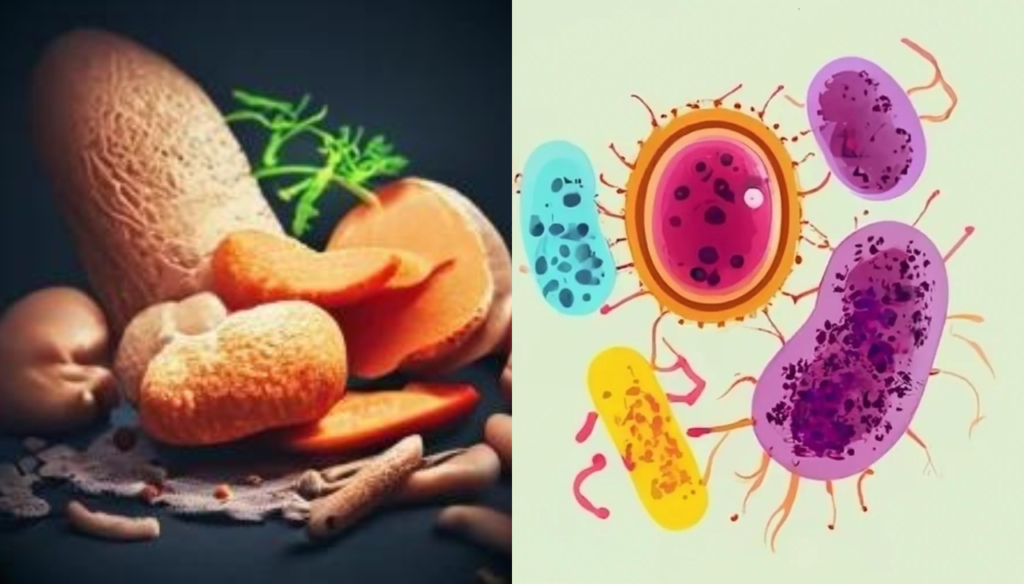1.Introduction
Food poisoning is a common yet unpleasant experience that many people encounter at some point in their lives. Whether it’s from consuming contaminated food or drinks, the symptoms can range from mild discomfort to severe illness. Understanding the causes, symptoms, and treatments of food poisoning is essential for maintaining good health and preventing future occurrences.

2. What is Food Poisoning?
Food poisoning, also known as foodborne illness, occurs when you consume food or drinks contaminated with harmful bacteria, viruses, parasites, or toxins. These contaminants can lead to various gastrointestinal symptoms, such as nausea, vomiting, diarrhea, and stomach cramps. In severe cases, food poisoning can cause dehydration, organ damage, and even death.
3. Common Causes of Food Poisoning
Food contamination can occur in a number of ways and result in food poisoning. Among the most typical causes are:
- Bacteria: Raw or undercooked meat, poultry, eggs, and dairy products are common sources of pathogenic bacteria, including Salmonella, E. coli, and Campylobacter.
- Viruses: In environments like restaurants or cruise ships, contaminated food or water can transmit viral diseases like the norovirus and hepatitis A.
- Parasites: Food and water supplies can get contaminated by parasites like Giardia and Cryptosporidium, which can cause gastrointestinal symptoms.
- Toxins: If consumed, toxins generated by some bacteria, including Clostridium botulinum and Staphylococcus aureus, can contaminate food and result in disease.
4. Symptoms of Food Poisoning
Depending on the kind of contamination and the person’s health, food poisoning symptoms can change. Typical signs and symptoms include of:
- Throwing up and nausea
- Diarrhea
- Weakness and exhaustion
- Fever – Abdominal discomfort and cramps Headache
- Aches in the muscles
In extreme situations, symptoms could last for a few days and necessitate medical care to avoid problems like dehydration.
5. Treatment and Prevention
Relieving symptoms and avoiding dehydration are the main goals of treatment for food poisoning. Here are some actions that you can do:
- Drink plenty of liquids, such as water, clear broths, and oral rehydration treatments, to stay hydrated.
- Take it easy and abstain from solid food until your symptoms subside.
- Get medical help right away if you suffer from severe dehydration or if your symptoms don’t go away.
- Adhere to the following recommendations to avoid food poisoning:
- Thoroughly wash your hands both after using the restroom and before handling food.
- Cook to perfection to eradicate hazardous bacteria from meat, poultry, and eggs.
Maintain a barrier between raw and cooked foods to avoid cross-contamination. - Store perishables in the refrigerator as soon as possible, and stay away from spoiled or expired food..
6. When to See a Doctor
Though the majority of food poisoning cases go away on their own in a few days, some symptoms might call for emergency assistance. A visit with a physician is necessary if you:
longer than a couple days of continuous vomiting or diarrhea
101.5°F is considered a high fever.
Vomit or feces with blood
dry mouth, reduced urine production, and lightheadedness are symptoms of dehydration
Confusion, breathing difficulties, and chest pain are signs of a serious illness.
By seeking immediate medical attention, food poisoning can be properly treated and complications can be avoided.
Results
Food poisoning is a frequent incident that can be upsetting and inconvenient. You and your loved ones can prevent foodborne infections by being aware of the causes, symptoms, and treatments of these illnesses. Reducing the effects of food poisoning and enhancing general health can be achieved by following recommended food safety procedures and getting medical care when needed.



